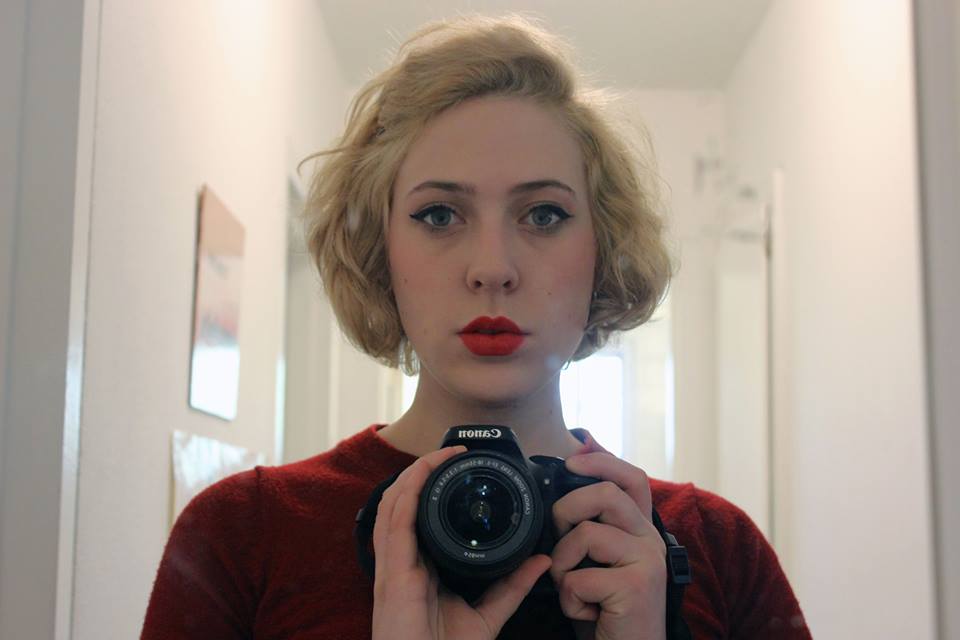Fangirling, Workshopping, and Multiple NarrativesThis week, we decided to turn the blog over to two of our fabulous, talented, wonderful, hilarious collaborators! (Can you tell we just love, love, love them?!) You may recognize Alana from our recent production of These Are the Men at the Southern Theater in March/April (yay, ARTshare!) and Rachel lent us her talents for the workshop presentation of House Party back in November 2014. We are so thrilled to have them back in the room playing and creating for the Penelope Workshop. Come see their work on July 24 & 25 at Savage Umbrella's SPACE. By Alana Horton First off, I’d like to get something off my chest. AHHHH I CAN’T BELIEVE I’M A GUEST BLOGGER GUYS!!! I’m a regular SU blog reader and at the first These Are The Men rehearsal I totally had a fangirl moment about how much I love it. THANKS FOR GIVING ME THIS CHANCE GUYS. Something I’m finding really exciting during our workshop process of Penelope is the idea of MULTIPLE NARRATIVES. On first encounter, Penelope is presented as the ideal wife, the perfect woman, which to be honest is… pretty boring. She’s been held up as an example of chastity and loyalty by so many people throughout such a long period of time that there’s not much left of the woman there. She seems more a moral example than a human being. I love that in this workshop we’ve been talking about how to go beyond that initial impression of Penelope and let her live through different narratives on stage. Maybe in one retelling of our story she’s a lesbian! And in another, she totally slept with all 108 suitors! And in another she IS just totally perfect, and in love, and waited. All possible, all valid, and we get to actively try out all these versions, with eleven different people taking on the mantle of being Penelope. We’re embracing multiplicity, complexity, uncertainty, choice. I’m really excited about this, especially against the backdrop of a lot of conversations I’ve been having recently about intersectionality & feminism. I think it’s super crucial to keep thinking about how we make space for multiple voices and stories and ways of being in our lives and in movements. It’s nice to see us doing that same kind of work in Penelope; art mirrors life mirrors politics and (maybe, hopefully) equals change. Rebelling and Retelling - A Call to ActionBy Rachel Austin In my day-to-day work, I am charged with the task of asking children to re-imagine and transform narrative - to look at classic tales from the dominant culture, question them, and then embody a change. That's what we're doing here. Many of us are never given the tools or the opportunity to question what we see or hear. We take these ancient tales as fact, allowing them to weave themselves into the fibers of our worldview, our perspective. It's dangerous, letting a text work on you like that. The Odyssey is a complicated and long story that most people have no physical relationship with. How many of us have sat down and actually read the epic poem cover-to-cover? But Odysseus's journey is a part of the mythology of Western civilization. The conquering of the Cyclops, the seductive music of the Sirens, fights with monsters and men, sex, intrigue, and war -- these are the allusions upon which our literature is built. But what about Penelope? One of the most subversive female characters ever written... one of the many SMART, cunning, subversive female characters who are glossed over by history and those who are allowed to construct our history. So how do we highlight her? How do we engage with HER story? How do we give her a voice in today's world? Because after all this time, she certainly deserves one. One of the most subversive things we can do is to give a voice to the silent, imagine what her words would have been, what she was thinking, what her intentions were. While we will never know if we're "right," it doesn't matter. What matters is that we are questioning the text, opening it up to multiple interpretations and perspectives, and through that we are gaining knowledge and practicing sustained complexity. And that makes us all better humans. But you can't stop at just this poem. From this day forward, you have to ask yourself - when you put down a book, read a story, hear a news report - "Who did we not hear from? Who's voice was left out?" THEN the work can truly begin. Are you intrigued, yet?!Join us under the umbrella for the |
Archives
November 2020
|




 RSS Feed
RSS Feed




